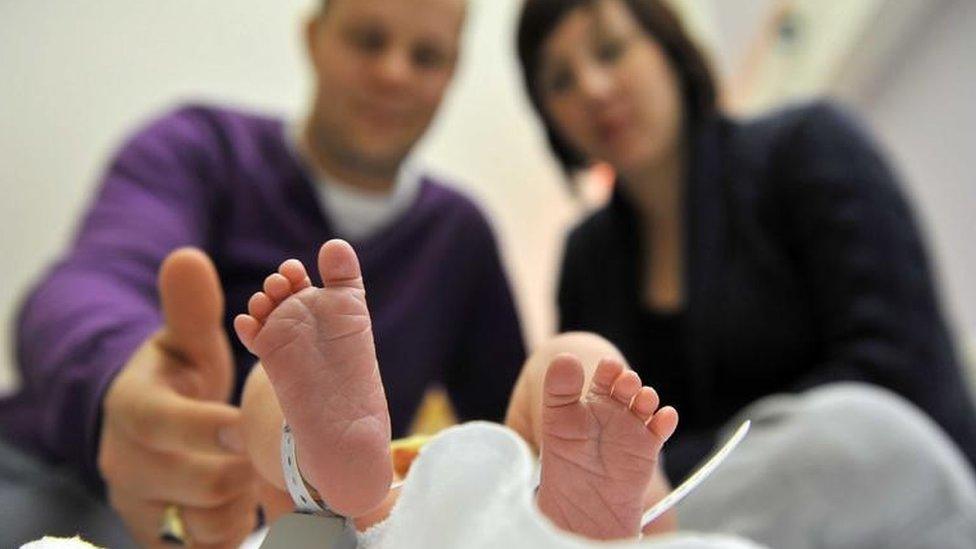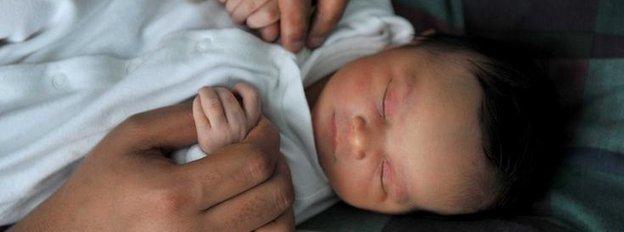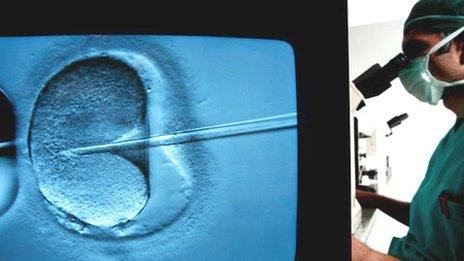Parental status 'lost to incompetence in IVF sector'
- Published

Dozens of people who had fertility treatment might not be the legal parents of their children as a result of "widespread incompetence" in the sector, a judge has said.
Sir James Munby's comments came after the case of seven couples who had assisted reproduction by sperm donor.
Consent forms, which give legal parental status, were not properly completed by clinics, it emerged.
Sir James also questioned the oversight of regulator the HFEA.
'Alarming and shocking'
If couples are not married or in a civil partnership they need to sign written consents - known as WP and PP forms - before treatment begins, to ensure they have legal parental rights.
Sir James, president of the family division of the High Court, said the failure to properly complete such forms painted an "alarming and shocking" picture.
The case itself involved five heterosexual couples and two same-sex couples, but the BBC understands 85 other couples could have their parentage called into doubt because of inaccurate paperwork.

Analysis

By the BBC's legal correspondent Clive Coleman
Imagine this: You have a baby with your partner assisted by sperm donation.
You have the treatment at one of the 109 clinics around the country licensed by the Human Fertilisation and Embryology Authority.
You fill in all the critical forms you're asked to fill in to ensure you have legal parental rights. You go off happily assuming you are the parents.
Then, out of the blue, you get a letter saying that due to errors in the form filling, you aren't the legal parent. You then have intensely personal matters raked over as you go to court to try and get a declaration that you are the parent.
That is what happened to seven families.
Sir James Munby, the most senior family judge in the country, gave judgment granting those declarations, but rounding on the Human Fertilisation and Embryology Authority, citing "widespread incompetence across the sector".

Following an earlier court judgment in 2013, the Human Fertilisation and Embryology Authority, external (HFEA) required all 109 licensed clinics in the UK to carry out an audit of their records.
In his judgment, external Sir James revealed that in 51 cases clinics discovered "anomalies" in their records.
"The picture revealed is one of what I do not shrink from describing as widespread incompetence across the sector on a scale which must raise questions as to the adequacy if not of the HFEA's regulation then of the extent of its regulatory powers," Sir James said.
He said that because of the sector's "incompetence", couples had been forced to come to court and reveal "intensely private" details in public.
In a statement the HFEA said it recognised the situation had been "been very stressful for the families involved".
It added: "They rightly assumed that legal parenthood was beyond doubt; finding out that it was not must have been very upsetting."
- Published5 April 2012

- Published13 May 2011
